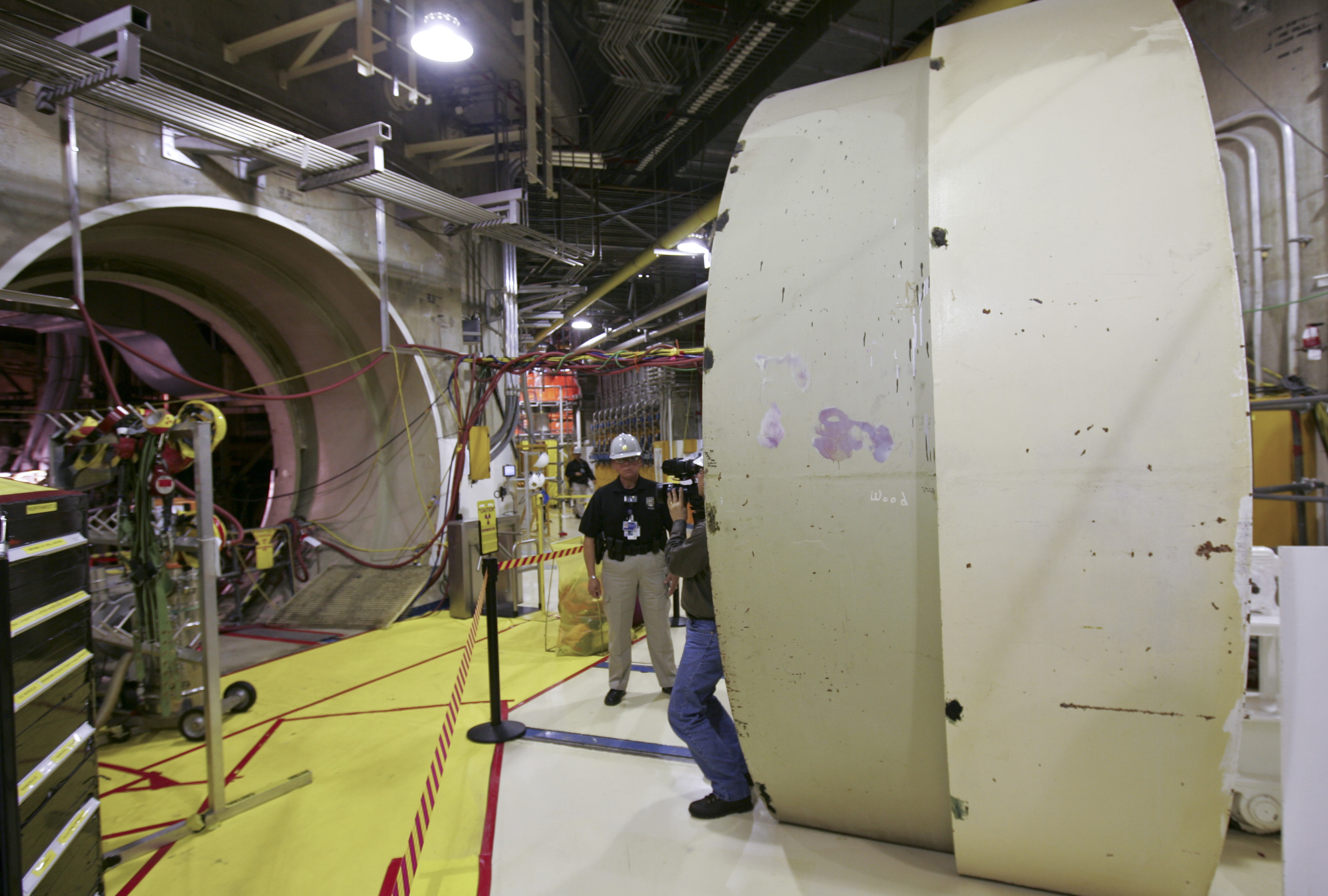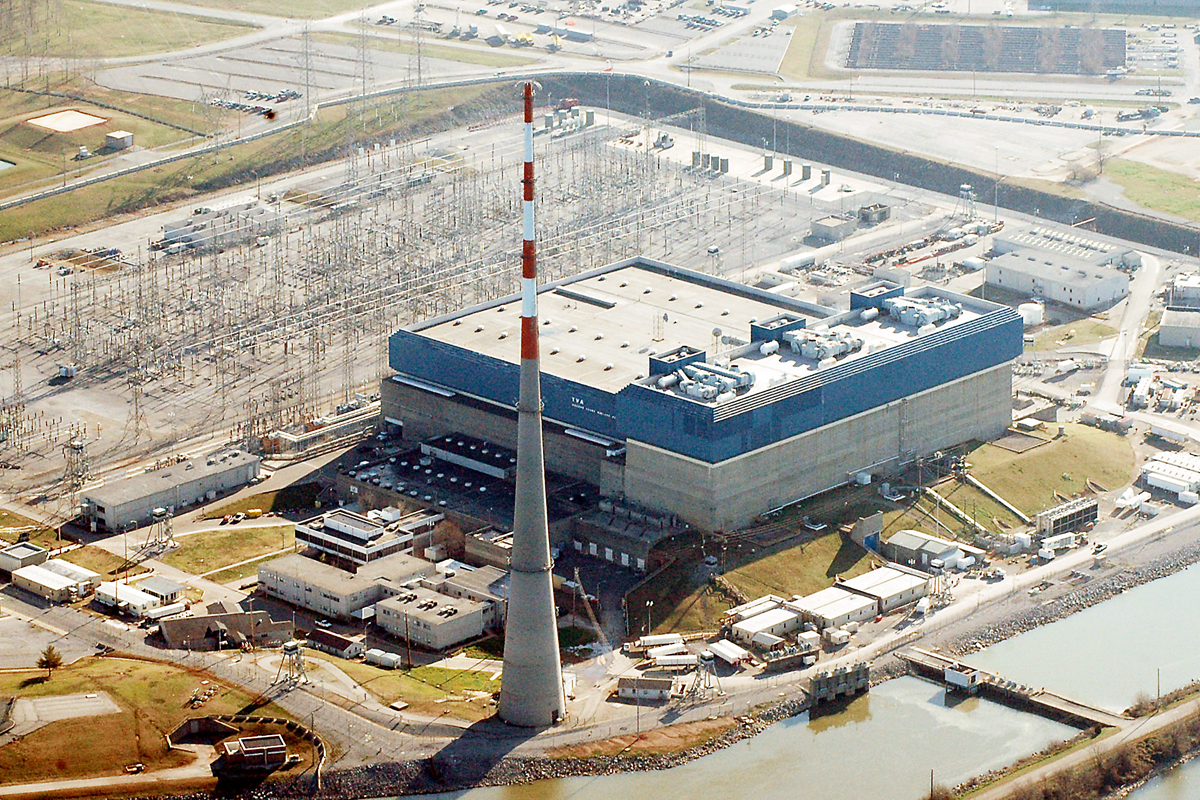Regulators say TVA's Browns Ferry Nuclear Plant safe to operate
Friday, January 1, 1904
ATHENS, Ala., -- Nuclear regulators on Monday told TVA and the public that a first round of "intrusive" inspections has found Browns Ferry Nuclear Plant safe to continue operating, but there are testing and documentation problems that must be corrected.
TVA Chief Nuclear Officer Preston Swafford told NRC officials that the utility will fix the issues identified.
"The issues identified are legitimate, and we need to be mindful," Swafford said.
The NRC's findings came after the first of three phases of inspections triggered by a rare, high-significance "red" rating the NRC made against the Athens, Ala., plant earlier this year after a reactor-core cooling valve failed. Shortly after the valve failure, NRC found the valve may have been inoperable for about 18 months.
"Red" is the worst level given by the NRC before a plant is shut down, something the agency has never done.
The NRC identified several specific problems at Browns Ferry:
• Several valves were not in the plant's normal in-service testing program.
• The plant in some cases has no proven method to verify valve closures as required by the American Society of Mechanical Engineers code.
• The plant does not have a "design basis document" for its in-service testing program, but is developing one.
• Several valves were modified without comprehensive testing or engineering analysis to verify proper function.
• The plant had some pumps with vibration or flow issues for which no correction action documentation had been made. Such documentation is one of the ways NRC maintains oversight of a nuclear plant.
• Engineering evaluations used to document operability of some valves had been updated incorrectly.
• Inspectors identified multiple examples of corrective actions where TVA "lacked rigor" investigating the cause of a problem or made repairs without determining the cause.
The first phase of NRC inspections were made in September and the second began at the Athens, Ala., plant on Monday. NRC officials announced that NRC Chairman Gregory Jaczko will tour both Browns Ferry and Bellefonte nuclear plant sites Friday.
"He wanted to visit," said NRC spokesman Joey Ledford. "He makes it a high priority to visit plants that may have had performance issues."
The Tennessee Valley Authority hopes to begin construction on its Bellefonte plant in Jackson County, Ala., in 2013, and the NRC must approve moving TVA's newly extended but "deferred" construction permit to "active status" before the work can begin.
At least three residents from communities in Northeast Alabama attended Monday's meeting.
Two of them, Garry Morgan and Gretel Johnston, both of Scottsboro, asked NRC officials if they will require safer containment covers to be built over spent fuel storage pools at nuclear reactors designed like Browns Ferry.
Like the Fukushima, Japan, plant that's still in crisis after a 9.0 earthquake and tsunami in March, Browns Ferry stores its spent radioactive fuel rods in pools on upper levels of the plant. The pools are covered with heavy metal sheeting much like carports and shell buildings. Other designs cover the pools with concrete.
"What if the tornado that struck [near the plant] on April 27 had torn off that [sheeting] roof and sucked the contaminated water out and scattered it over the community?" Johnston asked. "I want some reassurance."
One NRC inspector told the audience that those containments were upgraded for assaults such as that on the heels of the Sept. 11, 2001, terrorist attacks.
But David Lochbaum, a former TVA nuclear engineer and a former NRC training instructor, took that answer to task.
"That's not accurate," said Lochbaum, a Chattanoogan who now works for the Union of Concerned Scientists. "It may be reassuring, but it's not accurate."
The 9/11 changes "were only about airplanes," not multiple problems such as what the tornadoes caused or could have caused if one had made a direct hit on the plant, he said.
The tornadoes did knock out much of Alabama's and Mississippi's electric grid, stranding Browns Ferry plant for seven days on diesel power as the plant went into emergency shutdown.


